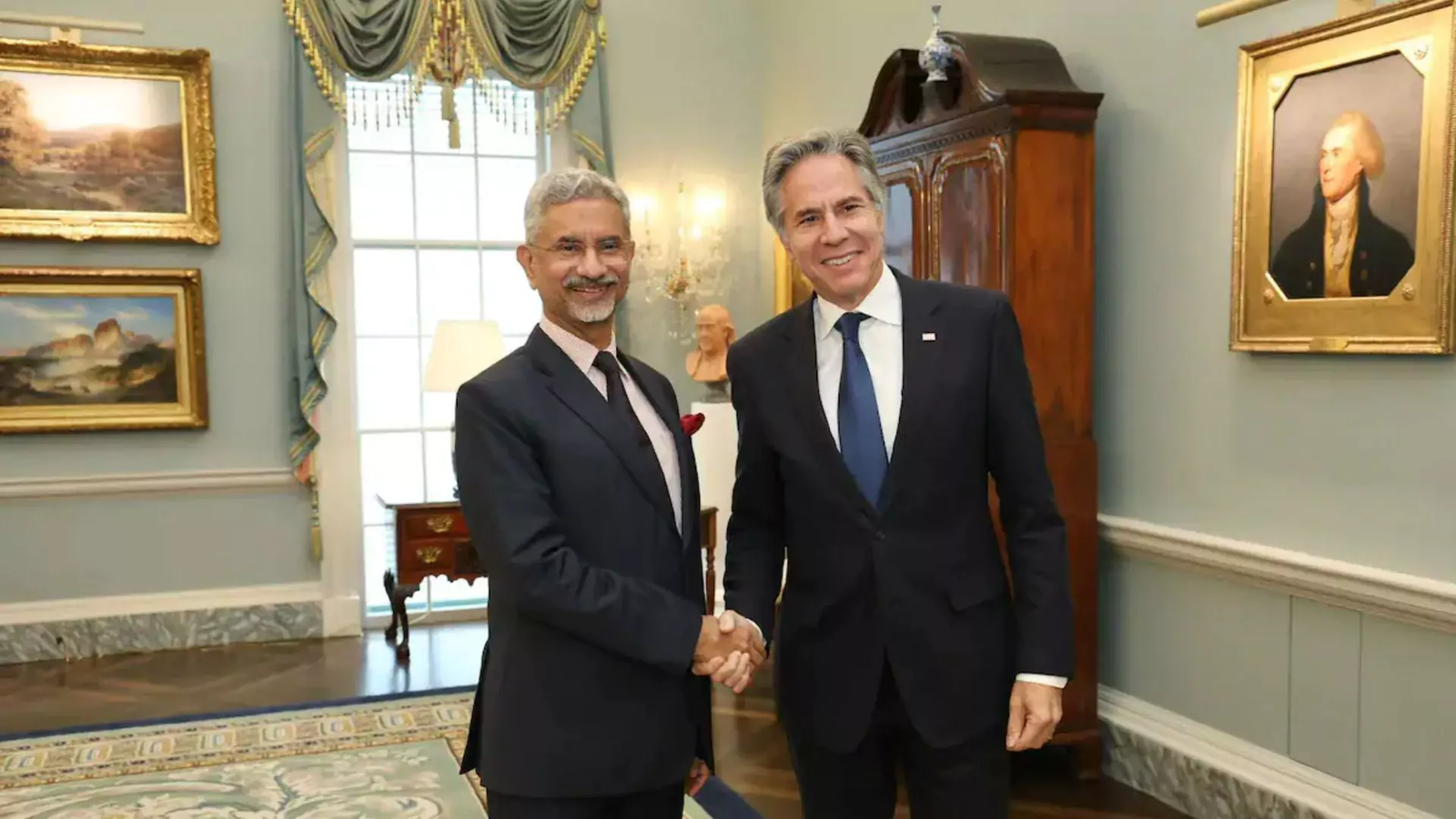In a pivotal diplomatic meeting held in Washington DC, United States Secretary of State Antony Blinken and India’s External Affairs Minister S. Jaishankar discussed the critical importance of US-India cooperation on global challenges. Their conversation focused on ongoing efforts to address regional issues and the broader global landscape, particularly in areas such as climate change, regional security, and emerging technologies.
Strengthening US-India Relations
The meeting, which marked Jaishankar’s first visit to the United States following Prime Minister Narendra Modi’s return for a third term, highlighted how both nations are united in their approach to tackling global issues. “Together, the US and India are working to address regional and global challenges,” said Blinken, reflecting the deep partnership that has developed over the years. Both leaders emphasized the value of US-India cooperation on global challenges such as promoting regional security and economic prosperity.
Climate Crisis and Clean Energy Collaboration
A significant area of focus during the talks was the ongoing cooperation on the climate crisis. As two of the world’s largest economies, both countries have committed to addressing climate change through initiatives in clean energy. The US and India are leading efforts to develop renewable energy technologies that can mitigate the effects of global warming. This collaboration exemplifies the larger US-India cooperation on global challenges, specifically in reducing carbon emissions and promoting sustainable development.
Global Security and the Indo-Pacific Region
Security in the Indo-Pacific region was another crucial topic. Both leaders expressed their commitment to maintaining peace and stability in this strategically important area. With China’s increasing influence in the region, US-India cooperation on global challenges is key to ensuring a free and open Indo-Pacific. The QUAD (comprising the US, India, Japan, and Australia) plays a vital role in this cooperation, and both Blinken and Jaishankar reaffirmed their support for the partnership.
Ukraine Conflict: Seeking a Just and Lasting Peace
During the meeting, Antony Blinken acknowledged PM Modi’s visit to Ukraine earlier this year, emphasizing the importance of achieving a just and lasting peace for the country. The situation in Ukraine continues to be a global concern, and US-India cooperation on global challenges in this area has focused on promoting peace through diplomacy. Both nations are aligned in their calls for conflict resolution and respect for international law.

Deepening Economic Ties: Semiconductors and Critical Technologies
One of the most exciting areas of US-India cooperation on global challenges is in the field of semiconductors and critical technologies. With the global chip shortage affecting various industries, both countries have agreed to work together to strengthen the supply chain for these crucial components. India, with its growing tech industry, and the US, as a leader in innovation, are natural partners in developing the next generation of semiconductor technology.
Beyond semiconductors, the two nations are also collaborating on emerging technologies such as artificial intelligence, quantum computing, and 5G telecommunications. This cooperation is vital for both countries to remain competitive on the global stage and address the growing importance of digital transformation.
Reflecting on Bilateral Success: Modi-Biden Partnership
Both Blinken and Jaishankar reflected on the strong relationship between President Biden and Prime Minister Modi, which has strengthened ties between the two countries. The leaders’ personal rapport has fostered greater cooperation across a range of issues. Jaishankar noted that bilateral meetings, such as those held during the UN General Assembly and the QUAD, have paved the way for deeper collaboration. This partnership serves as the backbone for US-India cooperation on global challenges, driving forward shared goals.
Promoting Regional Security and Global Prosperity
Regional security, particularly in the context of West Asia and the Indian subcontinent, was also discussed. Both nations are committed to working together on security issues to promote regional stability. US-India cooperation on global challenges in these regions not only benefits their own national interests but also contributes to broader global security and prosperity.
QUAD Meetings and Indo-Pacific Strategy
The QUAD continues to be a crucial platform for addressing issues in the Indo-Pacific region. As Blinken highlighted, the recent QUAD meetings have been instrumental in coordinating efforts to ensure security and stability in the region. Both nations are aligned in their vision of an Indo-Pacific that is free from coercion, with US-India cooperation on global challenges serving as a foundation for future actions.
Collaboration on Emerging Technologies
Both Blinken and Jaishankar underscored the importance of their countries’ cooperation in critical and emerging technologies. As technology becomes an increasingly vital aspect of national security and economic growth, US-India cooperation on global challenges in this area will be pivotal in shaping the future. Both countries are exploring ways to enhance collaboration in defense technology, artificial intelligence, and cybersecurity.
Read More: The Badlapur Sexual Assault Case: A Call for Action and Accountability- Click Here
Conclusion
The meeting between Antony Blinken and S. Jaishankar marks another step forward in the strong and growing relationship between the US and India. As the two nations continue to work together on key issues like climate change, regional security, and emerging technologies, their collaboration is becoming increasingly important for addressing global challenges. US-India cooperation on global challenges is not only improving the lives of citizens in both countries but also contributing to a more peaceful and prosperous world.
As this partnership continues to evolve, it will serve as a model for international cooperation on a wide range of global issues, ensuring that both nations play a leading role in shaping the future.







